Imperial teams compete in second ever ‘bionic Olympics’ from home
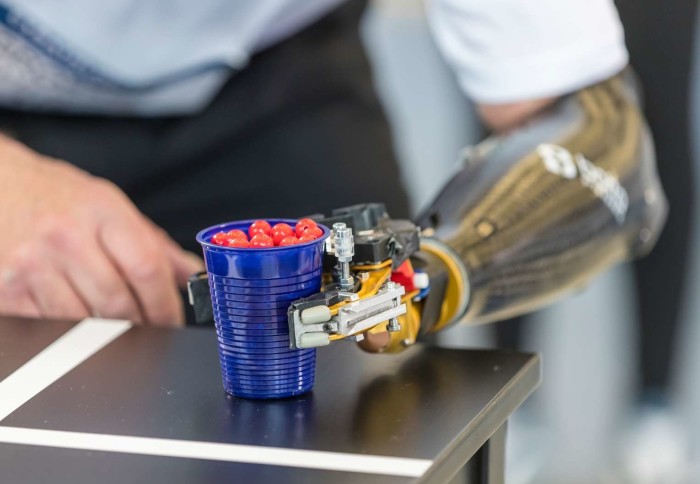
Credit: Cybathlon
After winning a silver medal in the 2016 Cybathlon, Imperial College London is competing again in these ‘bionic Olympics’.
Using eye-movement-led wheelchairs, arm prostheses, and muscle-stimulating bikes, three outstanding athletes and their Imperial teams will compete against 57 others worldwide on 13 and 14 November.
The Cybathlon is such a fantastic way to bring differently abled athletes into sports competitions while developing the latest assistive technologies. Professor Aldo Fasial Departments of Bioengineering and Computing
The Cybathlon lets differently abled athletes, known as pilots, race against each other and perform day-to-day tasks using the latest advances in assistive technology.
The competition helps to further develop the field of assistive technology, enabling people with disabilities to perform tasks that might currently seem beyond their reach. The Imperial teams, which are made up of researchers in the Faculty of Engineering and volunteer pilots, specialise in developing mobility devices and neuroprostheses involving artificial intelligence.
Overall team captain Professor Aldo Faisal, of the Departments of Bioengineering and Computing, said: “The Cybathlon is such a fantastic way to bring differently abled athletes into sports competitions, while developing and showcasing the latest in assistive technologies.”
Professor Faisal is also Director of the UKRI CDT AI for Healthcare, which is supporting Imperial’s involvement.
Imperial teams bring their A-game
The Cybathlon comprises six sporting disciplines, of which Imperial teams will compete in three. The Powered Wheelchair Race, the Powered Arm Prosthesis Race and the Functional Electrical Stimulation Bike Race are all designed to test both the assistive technology and the pilot’s skill in using it.
Unlike last year’s competition, which was held in Zurich, this year’s teams have set up infrastructure in their home towns and will film their races under the supervision of Cybathlon officials over the two days.
Watch the Cybathlon live on 13 and 14 November 2020.
Powered Wheelchair Race
Team Captain: Mahendran Subramanian
Team Pilot: Paul Moore
I am excited to compete in this race and see just what this wheelchair can do! Paul Moore Team Pilot
Pilot Paul Moore, who is paralysed in both his legs, will guide an eye-gaze-led wheelchair through six different tasks that each award points. The team to score the most points wins, with tasks including navigating a slalom, driving up ramps while opening doors, driving on rough terrain, and parking the wheelchair under a tabletop.
The wheelchair drives and navigates itself, led only by the gaze of the pilot and a Light Detection and Ranging (LiDAR) sensor, which builds a virtual map of the environment to help the chair avoid obstacles.
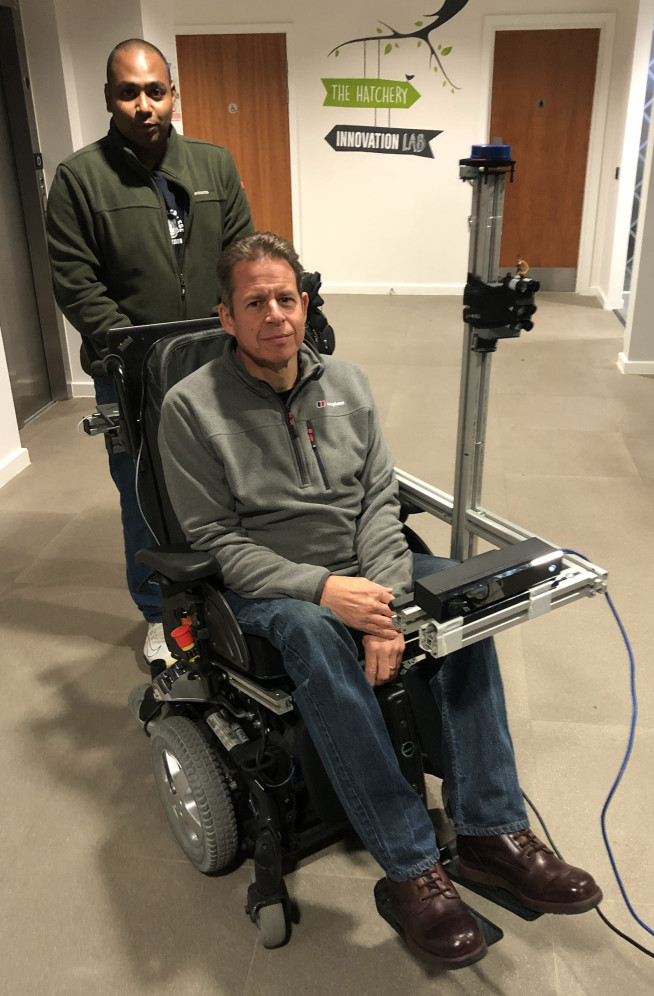
Team captain Mahendran Subramanian of Imperial’s Department of Computing said: “The eye sensors and LiDAR is wonderful, but the most brilliant thing about the chair is its ability to help people. It needs no input from arms or legs – if you can move your eyes, then you can operate the chair.”
Paul, who has been paraplegic for 40 years and is a former Paralympian, is an active wheelchair user. He will be competing from Peterborough United Football Club.
He said: “Although I don’t need an electric wheelchair in daily life, I can certainly see the advantages for longer journeys because I can rest my arms and relax more. I am excited to compete in this race and see just what this wheelchair can do!”

Powered Arm Prosthesis Race
Team Captain: Irene Mendez
Team Pilot: Conrad Christian Bona
It has been great to see how an idea on paper turns into a testable prototype. Conrad Christian Bona Team Pilot
Pilot Conrad Christian Bona, who was born without a left hand, will use a sensing prosthetic arm to complete six tasks including cutting bread with a knife, driving a nail into wood using a hammer, and stacking cups. He will also test the arm’s sensory capabilities by trying to identify an object through touch alone with no visual input.
Team captain Irene Mendez, of Imperial’s Department of Bioengineering, said: “We built an arm that combines sensing, control and mechatronics to give a sense of natural
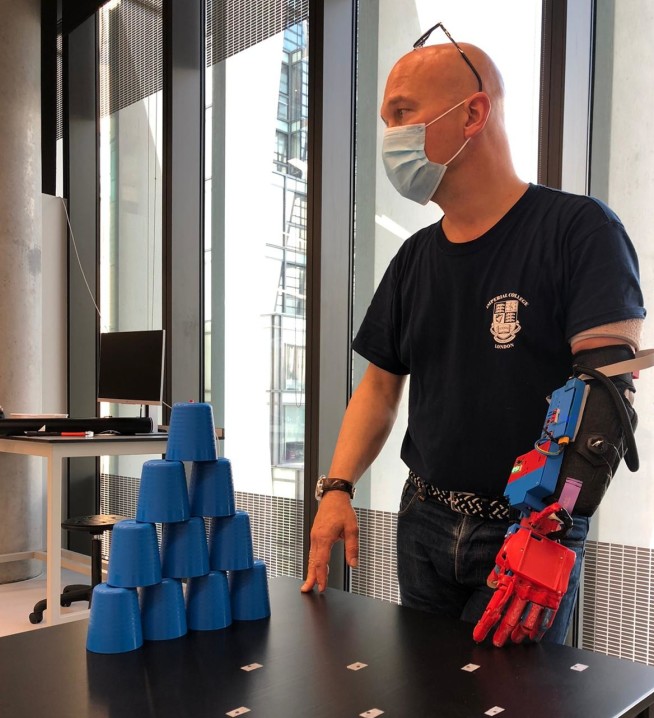
movement, empowering users and satisfying their everyday needs. Our pilot Conrad helps us a lot – we have learned lots, and through his motivating and driving nature he makes our work a joyful experience.”
Conrad, who runs an investment fund, will be competing from a lab at Imperial’s White City campus.
He said: “As a little boy, I was always looking for more functionality from my prosthetic arm but was often disappointed. Through working with the team, it has been great to see how an idea on paper turns into a testable prototype. As a multinational, dynamic team we bring together many different disciplines which add up perfectly.”
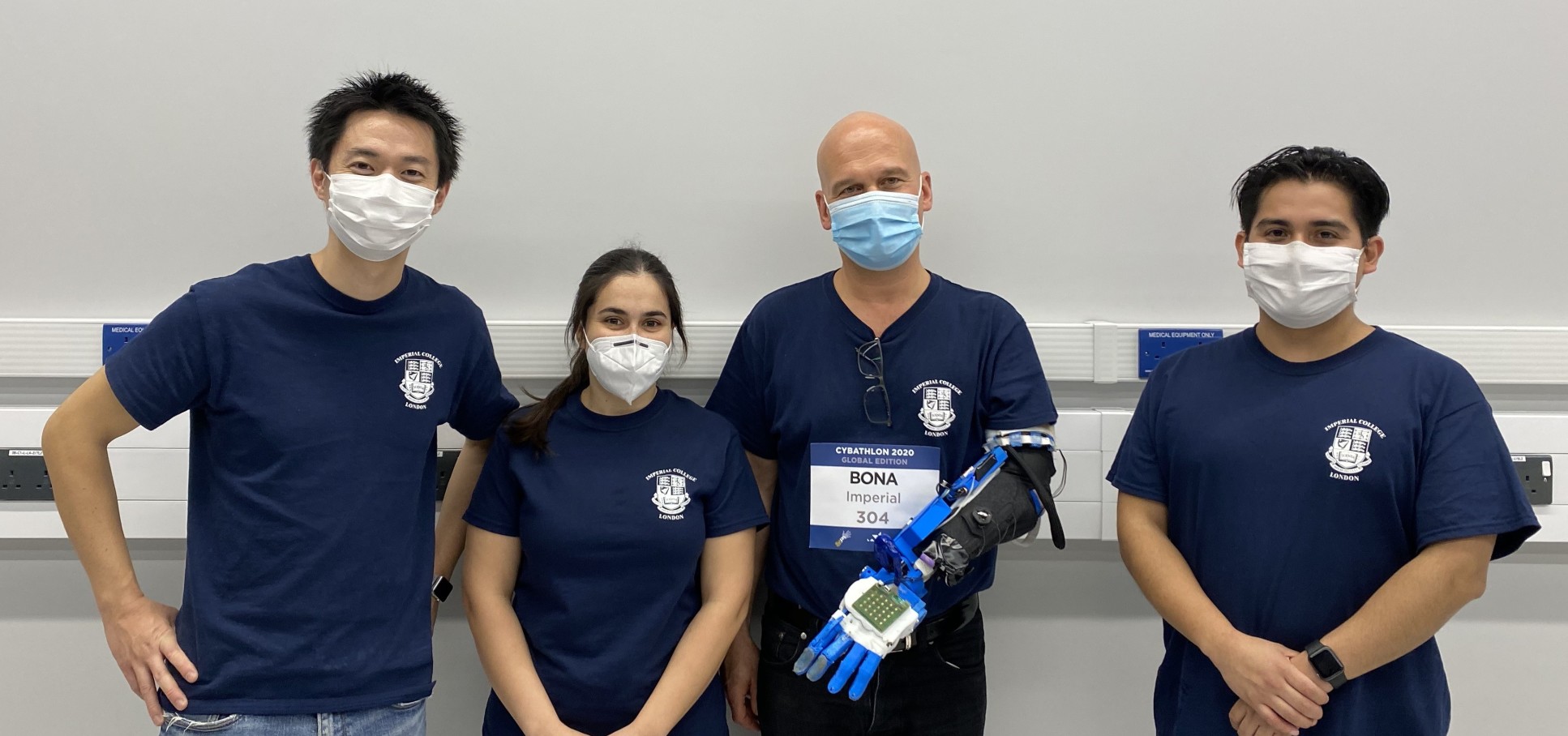
Functional Electrical Stimulation Bike Race
Team Captain: Nat Wannawas
Team Pilot: Johnny Beer
It highlights the benefits of advances in technology which can help the spinally injured regain function…I want to emphasise to all those in a similar position to me that there is hope. Johnny Beer Team Pilot
Pilot Johnny Beer, who is paralysed in both his legs, will ride a functional electrical stimulation (FES) bike 1200 metres within eight minutes.
FES uses electrodes on the skin or as implants to make muscles contract, allowing paralysed muscles to move again. Whoever gets the furthest in the shortest time wins the race, and pilots can control the power supply to the muscles themselves and thus regulate their speed depending on their endurance. Johnny will be riding a bike made by Dutch company Berkelbike.
Team captain Nat Wannawas of Imperial’s Department of Bioengineering said: “FES gives paralysed people control of their muscles again while they are using it. Joining forces with Berkelbike has allowed us to optimise the bike and its interaction with the pilot.”
Johnny, who lost full use of his legs during a trampoline accident, and who won a silver medal in 2016’s Cybathlon using FES, will be competing from his flat in Aylesbury.
He said: "Cycling gives me back the freedom I lost after my accident. It is important for me to win because it highlights the benefits of advances in technology which can help the spinally injured regain function while accelerating development through increased media coverage. I want to emphasise to all those in a similar position to me that there is hope.”
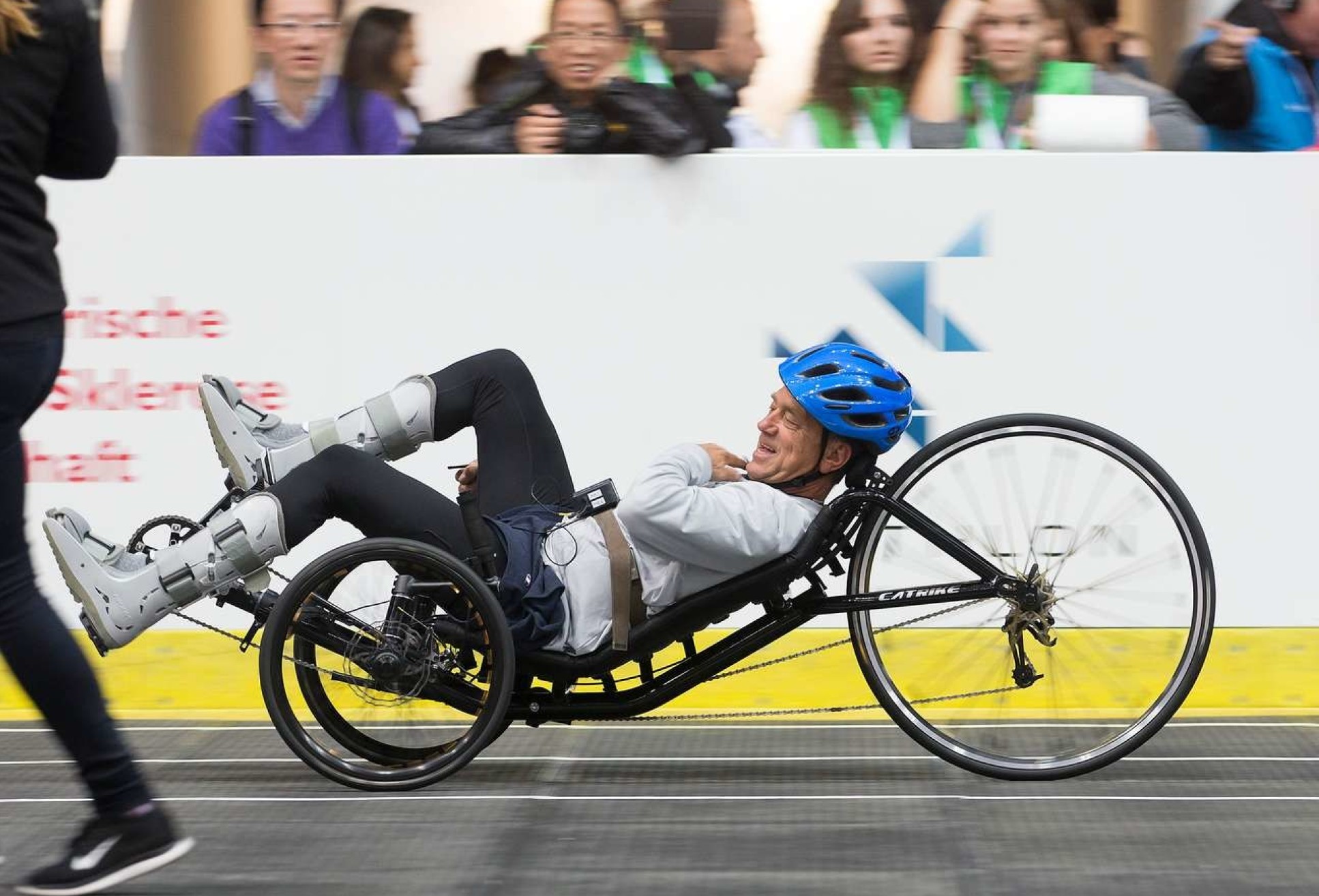
All images credited to Imperial College London except where otherwise stated.
Article text (excluding photos or graphics) © Imperial College London.
Photos and graphics subject to third party copyright used with permission or © Imperial College London.
Reporter
Caroline Brogan
Communications Division